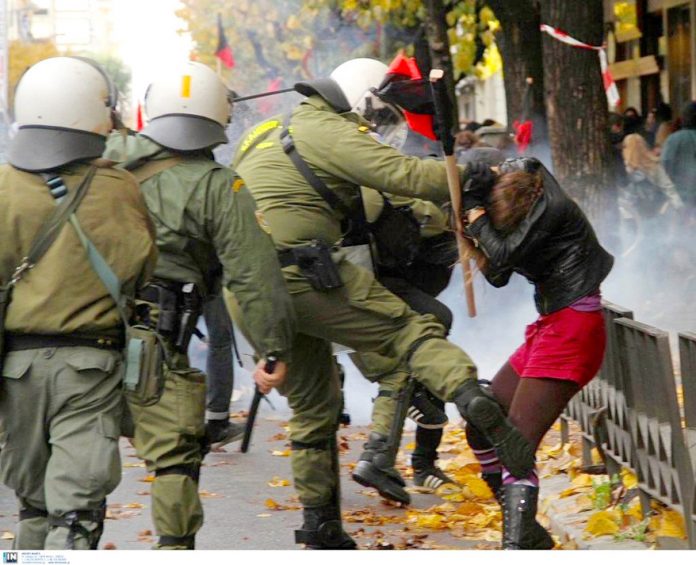
THE Athens Stock Exchange collapsed again by 7.35 per cent on Thursday wiping 13 billion euros off shares.
In the last three days it has lost almost 20 per cent of its total share price.
Greek banks’ shares were the hardest hit losing 8.8 per cent. The 10-year Greek state bond yield reached 9.17 per cent, its highest point since last January.
The Greek Prime Minister Antonis Samaras, leader of the New Democracy conservative party, said that the Athens Stock Exchange’s collapse is due to the policies of the opposition Coalition of the Radical Left party (SYRIZA) which ‘frightens investors and markets’.
What frightens the ‘markets’ in Greece, and stops the aggressive foreign hedge funds making opportunistic ‘investments’ in Greece, is the determination of workers and youth to get rid of the government and the hated austerity measures imposed by the troika of EC-IMF-ECB.
Samaras has tried to avoid a general election, with opinion polls predicting a comfortable victory for SYRIZA, by calling for the election of the new President of Greece (head of state) by parliamentary deputies, to take place this month.
The election was due for next February but it clashes with the demands of the EC-IMF-ECB troika that the new austerity programme for Greece be agreed before February.
As well, the Greek Constitution states that unless a new President is elected by the Vouli (Greek parliament) a general election must be called.
Samaras has to find at least 180 parliamentary deputies willing to vote on 17 December for the government’s presidential candidate, Stavros Dimas, an ex-EU Commissioner and currently the vice-leader of New Democracy.
The Greek government, a coalition of conservatives and social-democrats, has the support of just 155 deputies, and Samaras hopes to gain the votes of the 20 independent deputies plus some deputies from two small parliamentary parties.
But several independent deputies, and the leaders of the small parties, in the last two days have stated that they will not vote for the government’s candidate for the presidency, forcing Samaras to call a general election.
This is to take place by the end of January 2015.